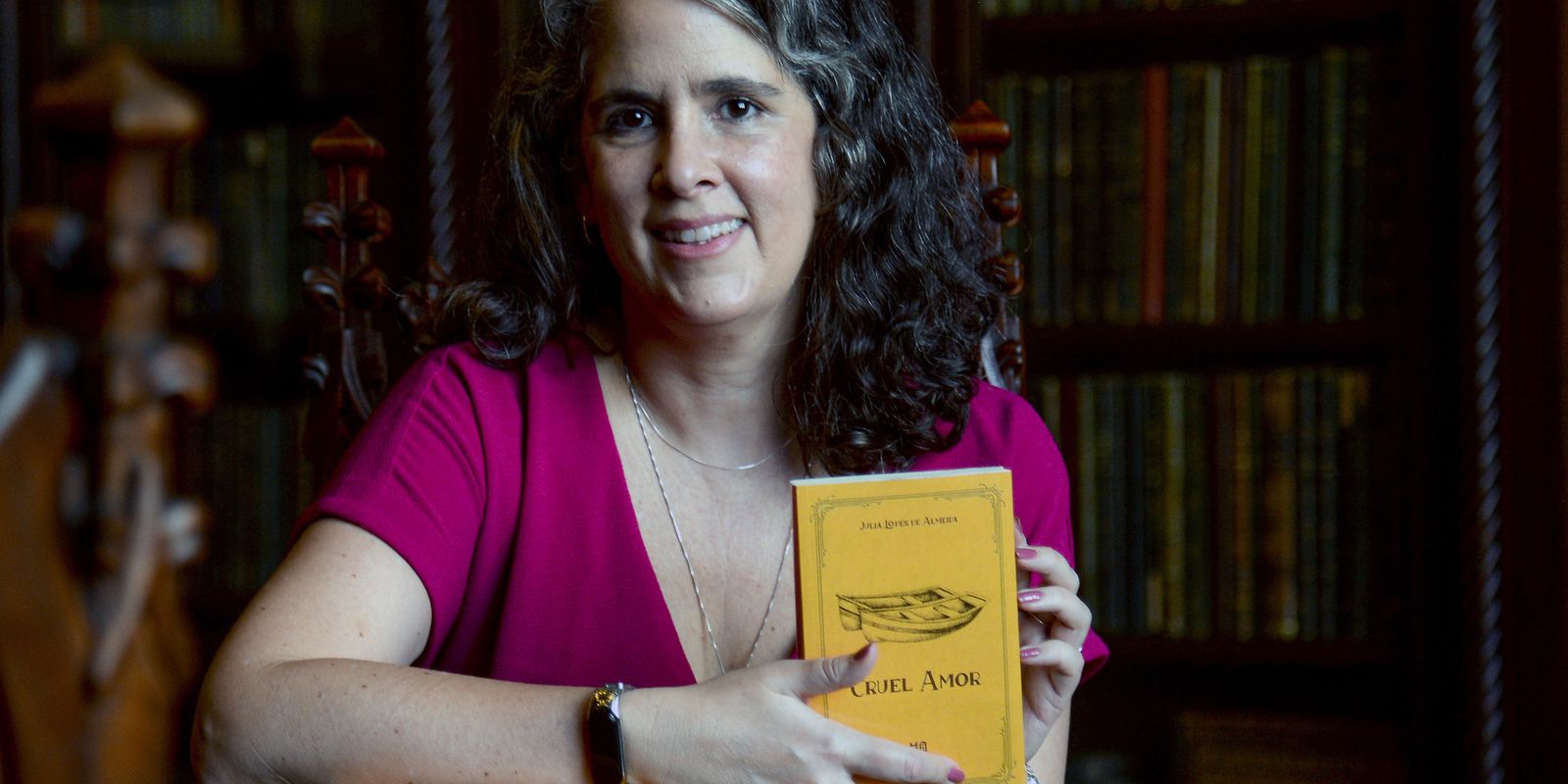Divorce, women’s education, feminism. These are some of the topics already addressed by Brazilian authors who published books in the 19th and 20th centuries. Many of these books did not reach the publishing market and ended up in oblivion. To rescue these works, journalist Ana Maria Leite Barbosa and her daughter, Carol Engel, graduated in marketing and with experience in the publishing market, created Janela Amarela Editora.
Created in the midst of a pandemic, in 2020, the publisher, in addition to publishing independent authors, now has seven titles, all written by women, between the years 1801 and 2000, in the formats physical and digital. “Many of them were already discussing issues that we are currently discussing at that time,” says Carol.
Carol was working at a publishing house when the covid-19 pandemic hit. She had her salary and working hours reduced. At the same time, her mother, Ana Maria, left the company where she worked. With free time available and looking for an activity to make up the budget, together they founded Janela Amarela Editora. The name initially came about because of the sound. From there, Carol and Ana Maria came to understand that it combined both the idea that news, ideas and conversations enter and exit through windows, and the yellow of light and energy, which generate creativity.
“I was reading a lot of English classics and asking myself: ‘I’m reading all the English women who wrote around 1800, and where are the Brazilian ones? Nobody wrote at that time?”, says Carol. It was from this questioning that came the idea of looking for Brazilian authors who published in the 19th and 20th centuries.
200 years ago, Brazil, recently independent from Portugal, lived under an imperial regime. Slavery was legal and institutionalized and that was until 1888. In the 19th century, the management of the home and the education of children were the responsibility of women. White men dominated the labor market in the cities and occupied positions of power. According to the publication of the Federal Senate Escridoras do Brasil [LINK: https://www2.senado.leg.br/bdsf/bitstream/handle/id/562126/Opusculo_humanitario.pdf]the Census carried out in 1872, found that 23.4% of men were literate, while 13.4% of women could read and write, and they were practically half of the population, 48%.
Authors’ choice
Having made the temporal cut, Carol and Ana Maria then needed to choose a first author, to start the work on Janela Amarela. As it is a small publisher, the idea was to start with works in the public domain, that is, works that can be reproduced and distributed without authorization. “We wanted it to be the public domain, but we didn’t want it to be the public domain that everyone has, like Memórias Póstumas de Brás Cubas [de Machado de Assis] or The Tenement [de Aluísio Azevedo]. We wanted something new,” says Carol.
Julia Lopes de Almeida came in a dream. The book A Árvore, written by her, was the bedside book of Ana Maria’s mother, Carol’s grandmother. When she died, Ana Maria kept the work, but did not even leaf through it. Until one day, she dreamed of the book. “When she looked at the book, she saw that it was by a woman, and a woman that was in the public domain. At the time, I was just reading The Bankruptcy [da mesma autora]. She arrived in the room and said: ‘I already know who we are going to publish’”.
Julia Lopes de Almeida, from Rio de Janeiro, lived between 1862 and 1934. She is the author of short stories, plays, novels and novels. She occupied the front pages of newspapers at the time, a space then reserved for male writers. Republican, defender of the abolition of slavery, divorce and female education, she wrote for 30 years in the newspaper O Paiz and had texts published in Gazeta de Campinas, Jornal do Commercio, Tribuna Liberal, A Mensageira, A Família, Kosmos, among others. vehicles.
Julia Lopes de Almeida was also the only woman to participate in the meetings that started the Academia Brasileira de Letras (ABL), but, as Ana Maria says, despite working so hard for the institution, she cannot be a part of it simply because she is a woman. The author has already published titles, but also has other unknowns. And they became the focus of the publisher.
divorce and education
The chosen authors have common characteristics, they are all considered to be in some way revolutionary and address topics that were taboo at the time they lived, such as divorce, which was only officially instituted in Brazil in 1977. Another topic was female education. The publication made by the Federal Senate shows that, in 1853, the country had a population of approximately 9 million inhabitants, among which only 55,500 were enrolled in schools, of which only 8,443 were women. It was in the 19th century that women started to work as teachers, but still without being able to occupy higher positions, such as school director.
“There was already a lot of talk about female education, most authors focus on that. I don’t know if it was by chance, but we picked up authors who are concerned about this, who say that women had to study. Saying, within the context of the time that women had to take care of the home, but nothing prevented them from having their publications. How many men wrote their books and were lawyers and journalists?” says Carol.
In Cruel Amor, according to the editor, Júlia Lopes de Almeida works with female characters and asks why she can’t marry the man she wants and, if that’s her desire, why not even marry for money?
Search
The works of Janela Amarela are printed on demand and shipped across the country. Through partnerships, the publisher is also able to print works abroad, also on demand. The disclosure is all done on the internet and is also on the internet, through the social networks, that mother and daughter receive nominations from authors. One of the publisher’s books, A Divorciada, by Francisca Clotilde, came from a nomination on Instagram.
“One of the readers, through Instagram, told us about her. It was hard to find, because the edit we found was incomplete. Ana Amelia Mota, who studies Francisca Clotilde, who had the work, sent us photos of her edition and we managed to complete it”, she says. Francisca was part of the Ceará Academy of Letters, an institution that, according to Carol, congratulated them for the publication.
To publish, the proposal is to search for the first editions of the selected works. And that, according to Carol, requires a lot of research, a lot of visits to libraries and second-hand bookstores. One of the next books to be published is Fantasia, by Cândida Fortes Brandão. To find the work, they contacted the city hall of Cachoeira do Sul (RS), the city where the teacher and writer was born and where they found a copy in the city’s Municipal Museum.
“We were able to discover a single copy of the book, in very poor condition, without a cover. They scanned it and will send it to us. There are pages that are faulty. We are in contact with them to send pictures of some snippets. That’s how it is, little ant work, looking and discovering”, says the editor. Another book, which Carol did not reveal what it is, but assured that it will be published soon, was found only in the United States.
Although books written by women in Brazil have gained more and more space on bookstore shelves, surveys show that they are still a minority in the publishing market. A survey carried out under the coordination of Professor Regina Dalcastagnè, from the University of Brasília, shows that between 1965 and 1979, 17.4% of the authors of novels were women. Between 2005 and 2014, this percentage rises to 29.4%.


















